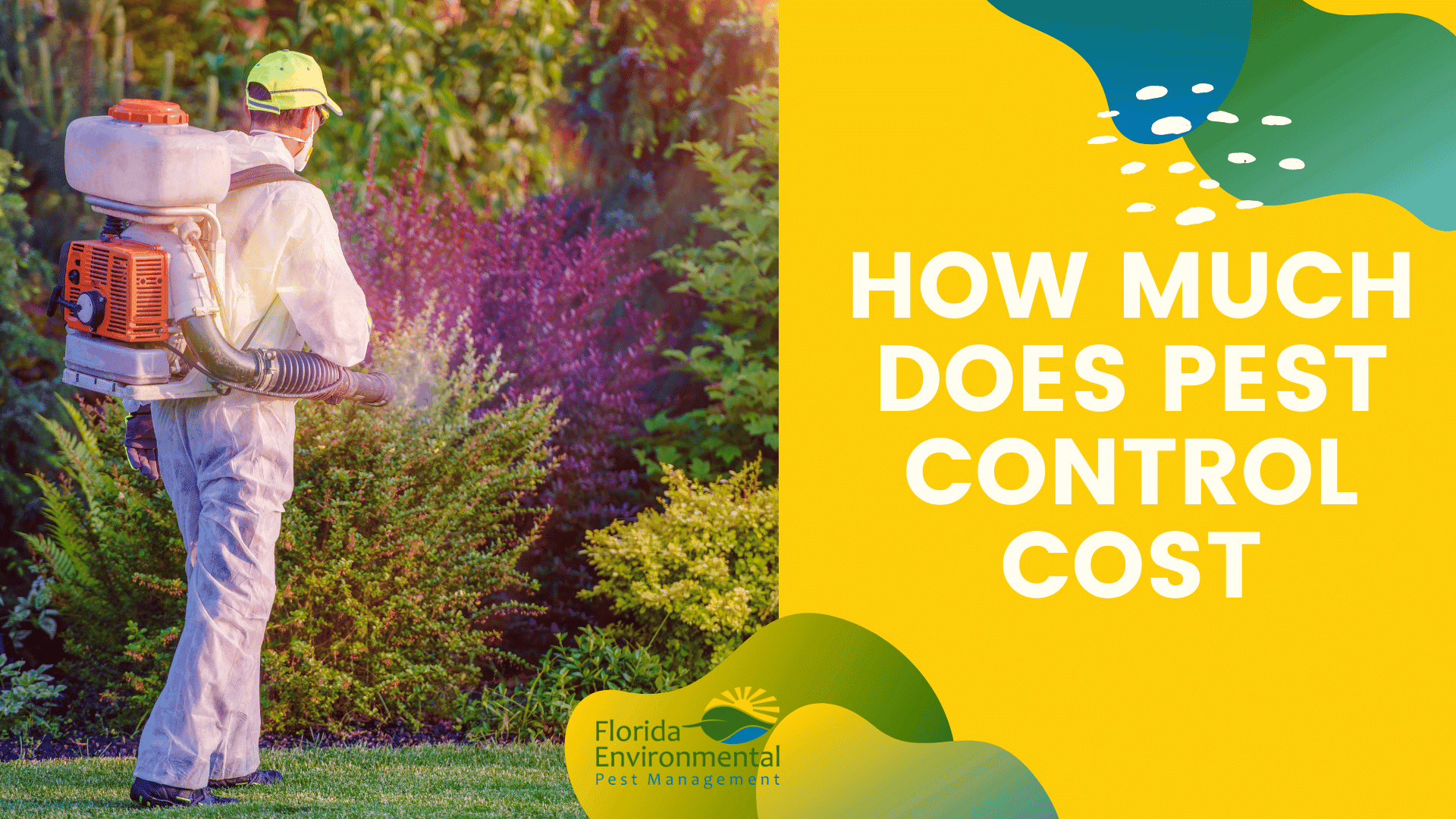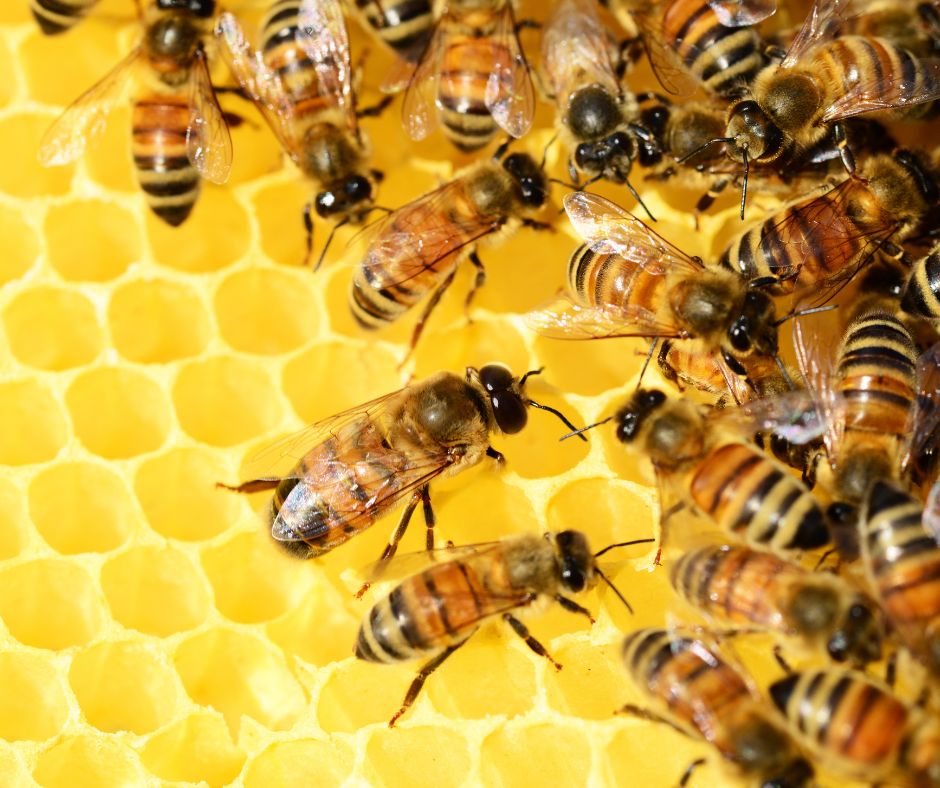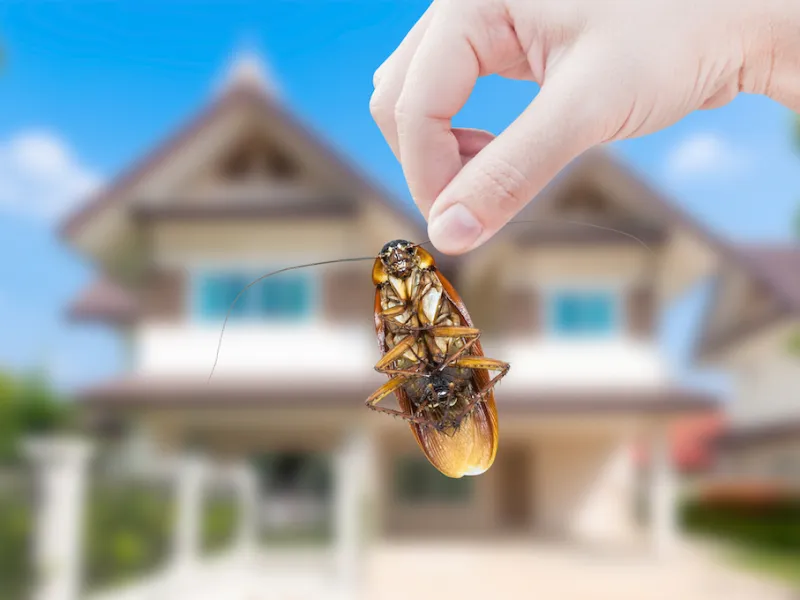Trusted Wildlife Removal Services in Port Charlotte to Securely Remove Pests
Reveal the Relevance of Insect Control in Keeping a Healthy And Balanced Setting and Therapy Techniques

The Duty of Pests in Ecosystems
Insects, typically watched only as annoyances, play a multifaceted duty in communities that is essential for maintaining eco-friendly balance. They contribute substantially to different environmental procedures, including pollination, nutrient cycling, and parasite control. For example, several insect species, such as and butterflies, are important pollinators for a vast array of plants, which consequently supports biodiversity and food production.
Additionally, parasites offer as target for many killers, creating an important web link in food webs. This connection ensures the survival of different species and assists regulate populations within ecological communities (Termite treatment Port Charlotte). Furthermore, decomposer insects, such as particular beetles and fungis, contribute in damaging down raw material, hence enriching dirt and helping with nutrient recycling.
Alternatively, while parasites can be helpful, their overpopulation or intrusion right into non-native environments may interfere with these environmental features. This complexity emphasizes the importance of understanding insect characteristics, as effective insect monitoring methods have to take into consideration both their ecological functions and potential effect on human tasks. Stabilizing pest existence while reducing injury is necessary for protecting the integrity of ecosystems and making certain farming efficiency.
Health Risks Related To Bugs
The visibility of insects in different settings extends beyond their ecological duties, as they likewise position significant health risks to animals and humans. Lots of bugs, including rats, bloodsuckers, and pests, are carriers of illness that can have severe health and wellness ramifications. Rats are understood to send hantavirus and leptospirosis, both of which can lead to severe breathing and kidney problems, specifically.
Pests such as insects and ticks are infamous for spreading vector-borne diseases like malaria, dengue high temperature, and Lyme disease. These diseases can cause high morbidity and mortality prices, specifically in susceptible populaces. Furthermore, pests like roaches and insects can intensify allergies and bronchial asthma, contributing to respiratory troubles in people, specifically those with pre-existing problems.
Moreover, the visibility of parasites can lead to psychological anxiety and pain, influencing general well-being. Contamination of food and surface areas by bug droppings and continues to be can cause foodborne health problems, highlighting the relevance of keeping hygienic conditions. For that reason, recognizing the wellness threats connected with insects is important in recognizing the necessity of efficient pest monitoring techniques to guard human and animal wellness.

Benefits of Efficient Pest Control
Efficient parasite control is important for preserving a safe and healthy environment, as it regularly reduces the countless risks connected with pest problems. One of the primary advantages of efficient insect management is the reduction of health and wellness hazards.
In addition, reliable insect control safeguards residential or commercial property and frameworks from damage. Numerous bugs, like termites and carpenter ants, can cause considerable structural damages that may require costly repairs. By proactively taking care of these property owners, infestations and services can safeguard their investments.
One more significant benefit is the renovation of overall quality of life. A pest-free atmosphere adds to psychological health and minimizes tension linked with problems. Effective bug control fosters a much safer setting spider pest control for animals and children, making certain that homes remain sanctuaries free from unsafe chemicals and disease-causing organisms.
Common Pest Control Methods

In the world of insect administration, various strategies are used to fight invasions properly. These strategies can be generally categorized into 3 primary techniques: social, mechanical, and chemical controls.
Cultural control entails modifying techniques to lower pest reproduction, survival, and establishment. This may consist of plant rotation, appropriate cleanliness, and habitat adjustment, which jointly produce an atmosphere less helpful to pest spreading.
Mechanical control uses physical methods to remove insects (Termite treatment Port Charlotte). Strategies such as vacuum cleaners, obstacles, and traps are commonly used to straight eliminate bugs from a location. This approach is specifically efficient for handling rats and insects without using harmful chemicals
Chemical control includes the application of chemicals to take care of parasites. These materials can be classified into pesticides, fungicides, and herbicides, each targeting specific kinds of insects. It is crucial to use these chemicals judiciously, adhering to safety standards and policies to decrease possible damage to non-target types and the atmosphere.
Each parasite control technique has its constraints and advantages, and typically, an integrated method integrating multiple techniques yields the finest results in preserving a pest-free environment.
Lasting Pest Monitoring Practices
Lasting bug administration techniques include a weblink variety of approaches created to reduce ecological effect while properly managing insect populaces. These practices focus on using eco-friendly techniques over chemical pesticides, thus lowering the danger of harm to non-target types, including beneficial bugs, wild animals, and humans.
Integrated Insect Management (IPM) is a keystone of lasting practices, incorporating organic, social, mechanical, and chemical methods to take care of bugs. Biological control entails presenting natural killers or bloodsuckers to subdue bug populations. Social methods, such as crop turning and polyculture, interrupt pest life cycles and improve community resilience.
Mechanical methods, such as traps or barriers, can properly stop bug accessibility without chemical intervention. Furthermore, keeping healthy and balanced ecosystems via appropriate soil management, plant health, and biodiversity can naturally alleviate parasite issues.
Education and recognition are essential parts, encouraging individuals and communities to identify pest threats early and execute precautionary actions. Termite treatment Port Charlotte. By fostering a holistic approach that balances parasite control with eco-friendly honesty, lasting bug administration methods not only shield structures and plants yet additionally add to a healthier environment for future generations
Conclusion

Understanding the wellness dangers associated with parasites is vital in recognizing the need of efficient pest administration strategies to safeguard human and animal health.
Reliable bug control is essential for maintaining a safe and healthy atmosphere, as it constantly minimizes the countless dangers linked with insect problems.Integrated Insect Monitoring (IPM) is a keystone of sustainable practices, incorporating organic, cultural, mechanical, and chemical tactics read what he said to handle insects. By comprehending the duty of pests, recognizing associated health dangers, and employing varied treatment techniques, a sustainable technique to pest management can be attained. Integrated Insect Administration (IPM) stresses an all natural methodology that reduces injury to useful microorganisms while efficiently managing insect populations.